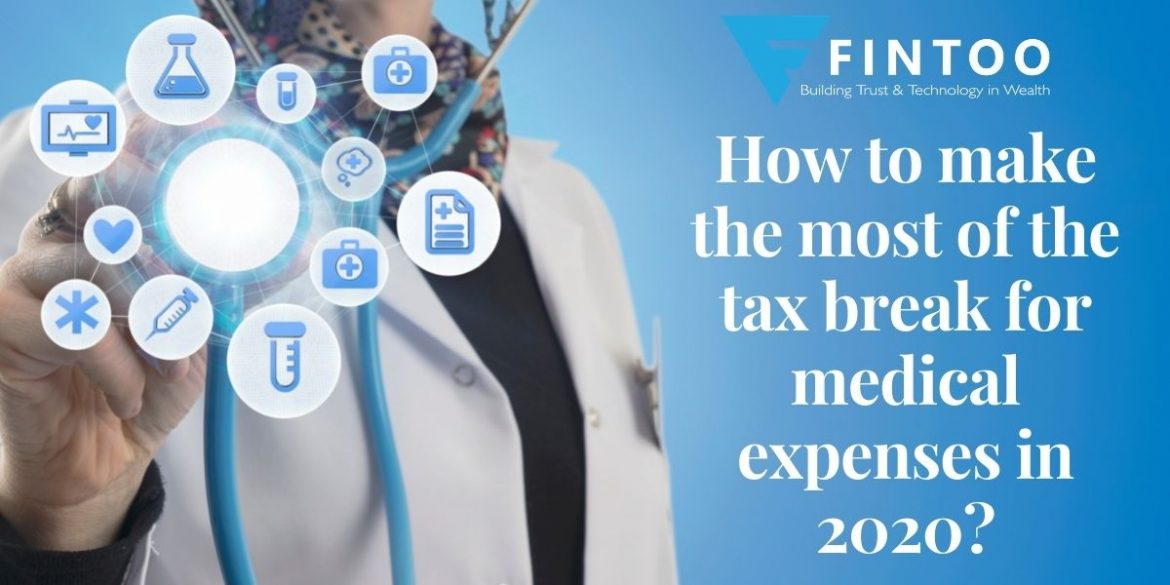

Health problems coupled with their associated treatment expenses have been undergoing a rise in recent years especially due to poor lifestyle choices and changing food habits. We have seen that Indians self-finance 78% of their medical expenses out of which 72% comprise expenses related to purchasing medicines both before and after the procedures. This was the main reason behind the introduction of several provisions in Income Tax Act 1961 for providing requisite relief to the society.
Today we are going to take a detailed look at the tax benefits which can be claimed by an individual out of his medical expenses in AY 2020-21.
Section 80D Tax Deduction
First and the most common section is 80D. If you have taken a health insurance policy for yourself or your family or both then you can claim deduction of the premium paid under this section.
You can claim this deduction for medical insurance for yourself, your spouse, dependent children and parents. This benefit is not available for brothers, sisters or grandparents.
Amount allowed for deduction for self, spouse and dependent children is maximum Rs.25000. Another 25000 is allowed for medical premium paid for parents. This is provided you are paying a yearly premium regularly without fail. If the assessee or the parents falls under the senior citizen age category i.e above 60 years of age, then his exemption amount increases to Rs.50000. Thus, we can see that a person can avail a tax benefit in the range of Rs.25000 to Rs.100000 from this section.
It is important to know that expenditure on preventive health check-up can also be claimed in this section. The maximum deduction that can be claimed is Rs 5,000 irrespective of the person’s age. Remember, this is not over and above the individual limits as explained above.
There is good news for senior citizens above the age of 60 years. If they are not eligible to take health insurance, still deduction is allowed for Rs 50,000 towards medical expenditure.
Section 80DD Tax deduction
A HUF or resident individual can claim deduction on the medical treatment and rehabilitation expenses incurred on a handicapped dependent relative u/s 80DD of Income Tax Act 1961. The law defines a dependent person as a spouse, children, parents, brothers and the sisters of the individual.
A fixed deduction of Rs.75000 can be claimed when disability ranges between 40-80% whereas Rs.125000 can be claimed if the quantum of disability exceeds 80%. The amount of deduction is fixed here irrespective of the amount you actually spend. So even if you are spending 35000, you will still get a deduction of 75000 or 125000 as per the case.
Now you might have a question about who will define the percentage of disability in an individual.
Well, a certificate of disability from a prescribed medical authority is required for claiming deduction under this section.
Also read: Also read: Complete guide on Covid-19 Medical Insurance – Fintoo Blog
Section 80U Tax Deduction
This section is similar to above i.e. 80DD. The only difference is that a taxpayer will get the benefit of this deduction if he himself is handicapped. For both sections, the amount that can be claimed as deduction does not depend on the age of the person. It depends on the percentage of disability of the person.
So the same 75000 or 125000 can be claimed as fixed deduction depending upon the extent of disability.
Section 80DDB Tax Deduction
Minor medical treatments, small surgeries and even medical consultations hold the ability of burning a deep hole in your wallet. In such a scenario, you can bring down your tax burden by availing the available deductions up to the maximum ceiling. A member of HUF or resident individual can claim deduction u/s 80DDB on medical expenses incurred on self, children, spouse, parents and dependent siblings.
However, this benefit can only be enjoyed by an assessee for the following specified ailments and diseases which are mentioned in Income tax Act:
- Malignant Cancer.
- Neurological diseases identified by a specialist with a disability level certified to be at least 40% or above such as Dystonia MusculorumDeformans, Dementia, Motor Neuron Disease, Hemiballismus,Chorea, Parkinson’s Disease, Aphasia and Ataxia.
- Chronic Renal failure.
- AIDS- Acquired Immuno-Deficiency Syndrome.
- Hematological disorders like Thalassaemia or Hemophilia.
It is imperative to note here that this section does not cover common medical expenses such as C-section or cataract. The age of the person on whom all medical treatment expenses has been incurred is considered before claiming the deduction u/s 80DDB.
The upper cap of deduction allowed in the provisions of Income Tax Act 1961 has been kept at 40,000 INR or the actual amount paid, whichever is less. It is for expenses incurred on self, dependent or a member of HUF. However, the exemption amount increases to 1,00,000 INR or actual expenses incurred, whichever is less if the medical expense is incurred on a senior citizen.
It is essential to understand that the amount of deduction claimed u/s 80DDB is exclusive of any other deduction which has been covered by other sections under Chapter VI-A. Any amount which has been reimbursed by the employer or received from the insurer on account of health insurance policy needs to be adjusted with the amount of deduction which can be claimed u/s 80DDB.
Conclusion
These provisions in unison can be of great assistance in decreasing the tax burden while ushering in various exemptions and deductions related to payment of insurance premiums and other medical expenses. So make use of these expenses to lower your tax liability.
A financial planning platform where you can plan all your goals, cash flows, expenses management, etc., which provides you advisory on the go. Unbiased and with uttermost data security, create your Financial Planning without any cost on: http://bit.ly/Robo-Fintoo
To Invest and keep regular track of your portfolio download: Fintoo App Android http://bit.ly/2TPeIgX / Fintoo App iOS http://apple.co/2Nt75LP
Disclaimer: The views shared in blogs are based on personal opinion and does not endorse the company’s views. Investment is a subject matter of solicitation and one should consult a Financial Adviser before making any investment using the app. Making an investment using the app is the sole decision of the investor and the company or any of its communication cannot be held responsible for it.
Related Posts
Stay up-to-date with the latest information.


